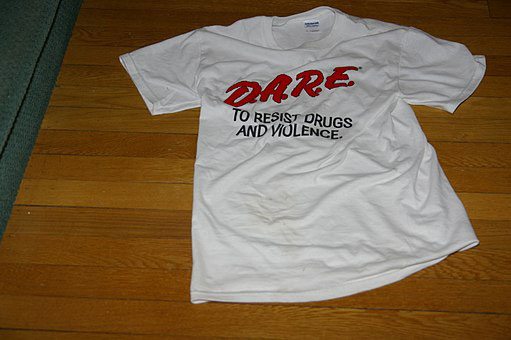
July 11, 2017; N.Y. Daily News
If we needed any additional proof that U.S. Attorney General Jeff Sessions is working at explicit cross-purposes with the interests of the general public while pandering to some pockets of law enforcement folk, here he comes again with a weird nonsensical proposal on a critical issue of our times.
“DARE is, I think, as I indicated, the best remembered anti-drug program today,” said Sessions at the training conference for the Drug Abuse Resistance Education program. “In recent years, people have not paid much attention to that message, but they are ready to hear it again.”
“We know it worked before and we can make it work again,” he intoned at the organization’s annual conference.
The problem is that we do not know that it worked, at least not for young people. DARE is one of those programs that was replicated enthusiastically before anyone ever measured its effectiveness. Not only was it ineffective at preventing drug use among young people, it seems to show a reverse correlation. As Peter Frumkin wrote in an article for NPQ in 2004,
At the time DARE was replicated across the country, no valid empirical evidence existed that tested the program’s impact. In some ways, local political decision-makers may not have really cared whether DARE worked. It was more important to implement DARE, sending a signal to government funding agencies, parents, and other interested parties that schools and their administrators were allies in the drug war. Demonstrating this shared normative belief by replicating DARE was perhaps more important to local political decision-makers than whether or not DARE actually reduced drug use. Since its initial implementation and widespread adoption across the nation, a substantial research literature has emerged assessing DARE’s impact. Overall, evaluations of DARE have consistently found the program to be ineffective at reducing drug use. Perhaps most troubling are recent findings that suggest DARE may increase drug use among participants (Rosenbaum et al., 1998).
The Washington Post reports that even four years before the 1998 study showing this reverse correlation, “the Research Triangle Institute, funded in part by the Justice Department, conducted a meta-analysis of all the existing research on DARE. Its conclusion was withering: DARE had little to no impact on rates of teen drug use.”
Even then, the evidence did not matter:
Sign up for our free newsletters
Subscribe to NPQ's newsletters to have our top stories delivered directly to your inbox.
By signing up, you agree to our privacy policy and terms of use, and to receive messages from NPQ and our partners.
The Justice Department was so incensed by this unexpected finding that it refused to publish the study, according to contemporaneous news reports. “I don’t get it,” DARE’s executive director at the time said of the RTI study’s findings. “It’s like kicking Santa Claus to me. We’re as pure as the driven snow.”
And therein lies the problem. For an administration that has branded itself as relying mainly on appeals to nostalgia and an idealized past and only sporadically on fact, the formerly politically popular DARE program must look promising to . But, toward what end?
Ironically, as the Washington Post reports, the organization itself, faced with its own decline after repeated negative evaluations, eventually declared itself out of the business, changing its mission and implementing a new “keeping it real” (KiR) curriculum.
If it almost seems like DARE isn’t really an anti-drug group anymore, that’s because it isn’t. The group explicitly spells out this new reality in its tax filings. Prior to 2009, DARE stated on its 990 IRS filings that its mission was “to implement and support drug abuse resistance education and crime prevention programs in the USA.” Post-2009, its mission is to simply “teach students good decision-making skills to help them lead safe and healthy lives.”
But a recent study has indicated that this new less drug oriented program may have no better success measures.
“The systematic review revealed major shortfalls in the evidence basis for the KiR DARE program,” that study’s authors conclude. “Without empirical evidence, we cannot conclusively confirm or deny the effectiveness of the program. However, we can conclude that the evidence basis for the DARE version of KiR is weak, and that there is substantial reason to believe that KiR DARE may not be suited for nationwide implementation.”
Sessions went on to promise that the Department of Justice would work with state and local authorities, including DARE, in its efforts to stop drug traffickers.
“We need you,” Sessions said. “We need DARE to prevent them from finding new victims. We need your strong leadership to deny them new customers.”—Ruth McCambridge











